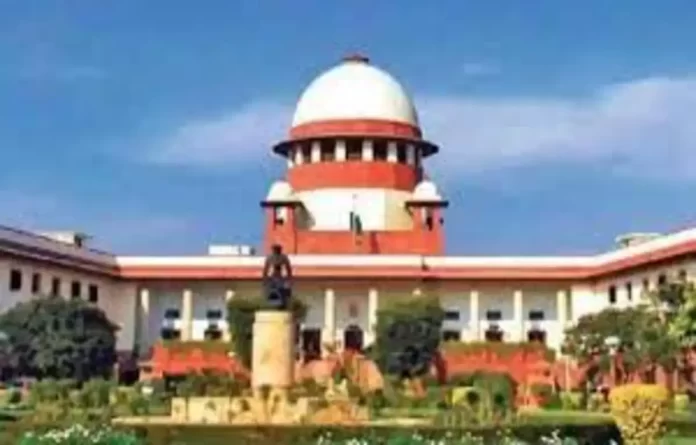The Supreme Court today commenced hearing a batch of pleas challenging several provisions of the Unlawful Activities (Prevention) Act. Nonetheless, the proceeding was adjourned untill tomorrow to give the petitioners time to consider whether they wished to pursue the matter in the high court.
The batch of petitions were slated to be heard by bench of Justice Bela M Trivedi and Justice Pankaj Mitthal alongside UAPA-accused and activist Umar Khalid’s bail plea and a writ petition lodged by him under Article 32 of the Constitution challenging the constitutionality of certain provision of India’s anti-terror statute.
However, Umar Khalid withdrew his bail today. Following, the court proceeded to hear the remaining petitions challenging various sections of UAPA. Senior Advocate Huzefa Ahmadi led the charge, representing an individual and a non-governmental organisation (NGO) who have assailed the constitutionality of Sections 15, 35, 36, and 38 of the UAPA.
The Senior Advocate asserted that these provisions, which define terrorism and terrorist activities and outline procedures for designating individuals as terrorists, contravene Articles 14, 19, and 21 of the Constitution, as well as India’s international obligations under the International Covenant on Civil and Political Rights (ICCPR).
At this juncture, the court raised questions regarding the standing of the petitioners and the maintainability of their challenge. Justice Trivedi questioned how the petitioners are affected? He added that the petitioner must be an aggrieved party and there must be a violation of their rights. Only then can the question of challenging the vires of a legislative provision would arise, he continued.
Advocate Ahmadi further argued that public-spirited individuals and organisations could file public interest litigations, mentioning past precedents where human rights organisations had initiated similar actions. However, the top court expressed reservations about allowing what it deemed proxy litigation.
Despite opposition from the senior counsel, the court opted to hear a petition filed by an individual directly affected by the UAPA, suggesting that Ahmadi could provide support while it heard concrete cases first.
Advocate Prashant Bhushan then commenced verbal submissions on behalf of two advocates and a journalist booked by the Tripura police under the UAPA, challenging the act’s definition of unlawful activities and its bail provisions.
During the hearing, objections were raised against this petition, with the counsel representing the State of Tripura saying that their main prayer is for the quashing of the first information report and the second prayer is with respect to the vires. This should go back to the high court, the counsel added.
Prashant Bhushan countered that they want to demonstrate how the UAPA is being abused by various police authorities across the country. He said that in the petition they have challenged the FIR as being a gross abuse of process of law. He pointed out that an FIR was lodged and a case under the UAPA was registered for tweeting Tripura is burning.
Meanwhile, the counsel appearing for the State of Tripura insisted that the appropriate forum for this adjudication was the high court. He argued that all these facts mentioned are no justification to surpass the high court’s jurisdiction under Section 482 and that there is no prohibition on a high court entertaining a challenge against the UAPA.
To this, Justice Trivedi said to Prashant Bhushan that they consider that he doesn’t want to go to the high court. He added that the petitioners need to take a call on whether they would like to continue with these proceedings or go back to the high court.
When the counsel indicated that they would have to seek instructions, the Supreme Court bench allowed petitioners time to deliberate on whether to proceed with the proceedings or revert to the high court and adjourned the hearing until tomorrow.


